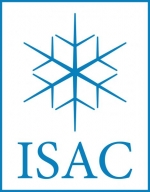
The International Study of Arctic Change (ISAC) is an interdisciplinary program of research on arctic environmental change initiated in the wake of the 2003 Study of Environmental Arctic Change (SEARCH) Open Science Meeting. A legacy of the International Polar Year (IPY), ISAC facilitates cooperation and collaboration in international arctic research and full integration of stakeholders into the research process. ISAC seeks to extend study of the Arctic from basic science to offer insight into options for solving real-world problems intrinsic to a changing planet.
ISAC takes an iterative, integrative, and pan-arctic approach to advancing the science needed to address arctic environmental change. ISAC seeks to drive forward observations and research activities that are significant for science and for society. In pursuit of these goals, ISAC activities lead to new ways to integrate stakeholders into research planning and execution.
A major ISAC undertaking for 2013 is the inaugural Arctic Observing Summit, scheduled for 30 April–2 May 2013 in Vancouver, British Columbia.
The Arctic Observing Summit (AOS) will be a high-level biennial summit that aims to provide community-driven and science-based guidance for the design, implementation, coordination, and sustained long-term operation of an international arctic observing system over several decades. The AOS will provide a platform to address urgent and broadly recognized needs of arctic observing systems. It will foster international communication about and coordination of long-term observations aimed at improving understanding and responding to system-scale arctic change. The Summit will be a forum for optimizing resource allocation through coordination and exchange among researchers, funding agencies, and others involved or interested in long-term observing activities, while minimizing duplication and gaps. It will also identify observing network issues that require the attention of the Arctic Council’s Sustaining Arctic Observing Networks (SAON).
Background
The AOS is led by ISAC. It is a SAON task and part of the broader SAON implementation process, which is led by the Arctic Council jointly with the International Arctic Science Committee (IASC) and the World Meteorological Association (WMO). Current organizing partners include the U.S. Interagency SEARCH Program, the ArcticNet Network of Centres of Excellence Canada (ArcticNet), the European Union's Arctic Climate Change Economy and Society project (ACCESS), and the International Arctic Research Center (IARC) at the University of Alaska Fairbanks.
Participants and Target Audience
The AOS agenda will be based on input from a broad range of stakeholders, including academic and research communities, nongovernmental organizations, arctic residents, government agencies, and the private sector. The AOS will be an iterative event, during which previously prepared white papers and shorter statements will be refined at the Summit through discussions, working sessions, and panels. The AOS is scheduled to enable the organization of side events that help advance planning, coordination, and integration of activities. AOS products will be prepared for arctic communities, decision-makers in government, the research community, the private sector, and the general public.
Outcomes and Products
The key outcome of the AOS will be an assessment of the fit between stakeholder needs, science objectives, and observing networks. The tangible products produced will include, but will not be restricted to, the following:
- Succinct policy briefs for the optimization and coordination of existing systems.
- The definition and operationalization of one or more initiating projects to network two or more observing systems to achieve a common set of science/mission objectives.
- One or more collections of peer-reviewed articles related to the AOS themes in special journal edition(s), as well as the publication of summit proceedings.
- The establishment of long-term AOS goals (e.g., unify data access, distribution and archiving practices, improve international access to the Arctic).
ISAC will convene a town hall meeting on Monday, 3 December, during the 2012 American Geophysical Union fall meeting. The town hall meeting will be dedicated to discussion of AOS. For more information, contact organizing committee members (AOS [at] arcticchange.org).
For further information about the Arctic Observing Summit, go to http://www.arcticchange.org/.
For further information about ISAC, go to http://www.arcticchange.org or contact Maribeth Murray (murray [at] arcticchange.org).
